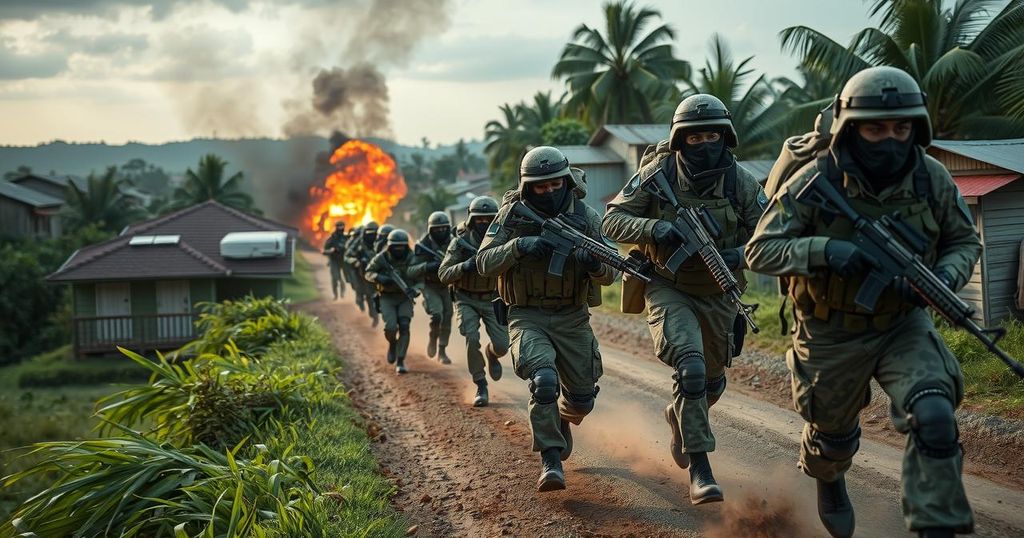M23 rebels, backed by Rwanda, have captured Katale, moving closer to Masisi in eastern DRC. This escalation has led to significant civilian displacement and casualties amid stalled peace talks. The M23 has controlled large areas since 2021, contributing to a humanitarian crisis in the region.
On Friday, the M23 rebels, supported by Rwanda, advanced towards a strategic town in eastern Democratic Republic of Congo, taking control of the Katale region. This area is critical as it serves as the final checkpoint before the rebels can reach Masisi, the administrative hub of the territory. Since 2021, the M23 militia has captured significant regions of eastern DRC, resulting in the displacement of thousands of residents and instigating a severe humanitarian crisis. During a period of stalled peace negotiations mediated by Angola, reports indicated that fighting has led to civilian casualties, and many have fled for safety. Masisi, situated approximately 80 kilometers north of Goma, has become increasingly perilous as the M23 continues its offensive, drawing closer to Lubero and the important commercial center of Butembo.
The M23, or March 23 Movement, is a militia group that emerged in eastern DRC in 2013 but re-emerged in 2021 with renewed aggression, facilitated by Rwanda’s backing. The ongoing conflict in the region has its roots in historical tensions that date back to the regional wars of the 1990s, which have caused persistent instability and violence in the mineral-rich eastern provinces of the DRC. As the M23 rebels capture key territories, international efforts for peace, including talks meditated by Angola, have faced significant challenges, leading to a humanitarian crisis marked by widespread displacement and violence.
The recent advancements of the M23 rebels towards Masisi underscore the ongoing instability in eastern Democratic Republic of Congo, driven by historical conflicts and influenced by foreign interventions. The situation continues to deteriorate, with humanitarian implications for the local population as casualties rise and displacements become more frequent. Without effective diplomatic resolutions and peacebuilding efforts, the cycle of violence and human suffering is likely to persist.
Original Source: www.barrons.com






